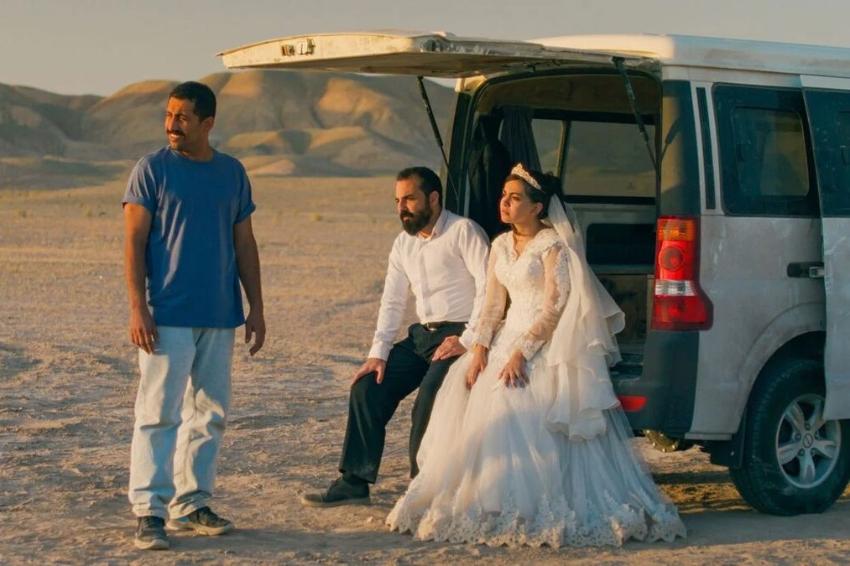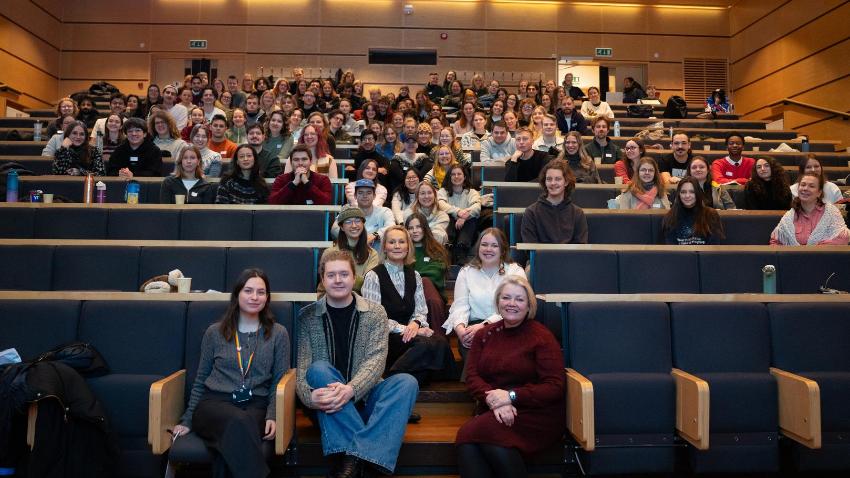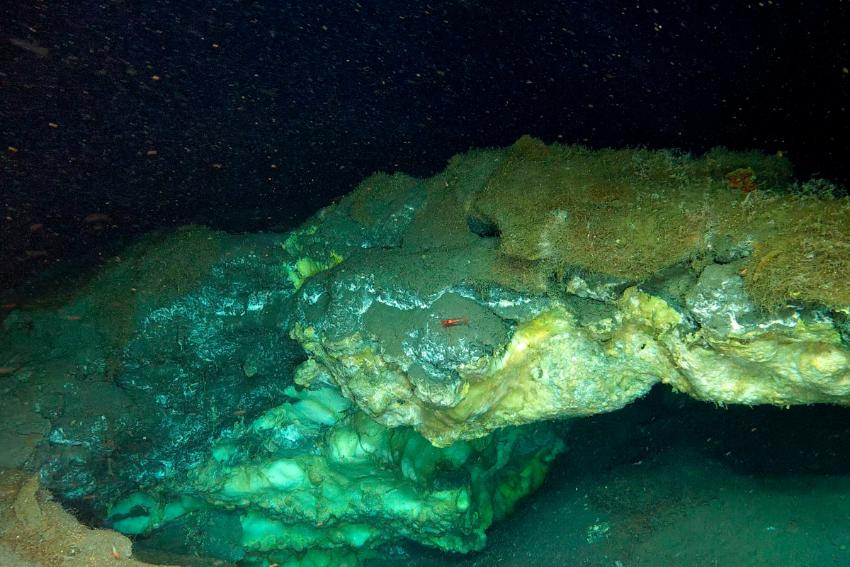Kenyan and Scandinavian partners connect in Norway to advance aquaculture
From September 2-6, 2024, academic and industry representatives from Kenya traveled to North Norway to collaborate with Scandinavian partners at UiT in Tromsø as part of the AQUADEVBUS project.
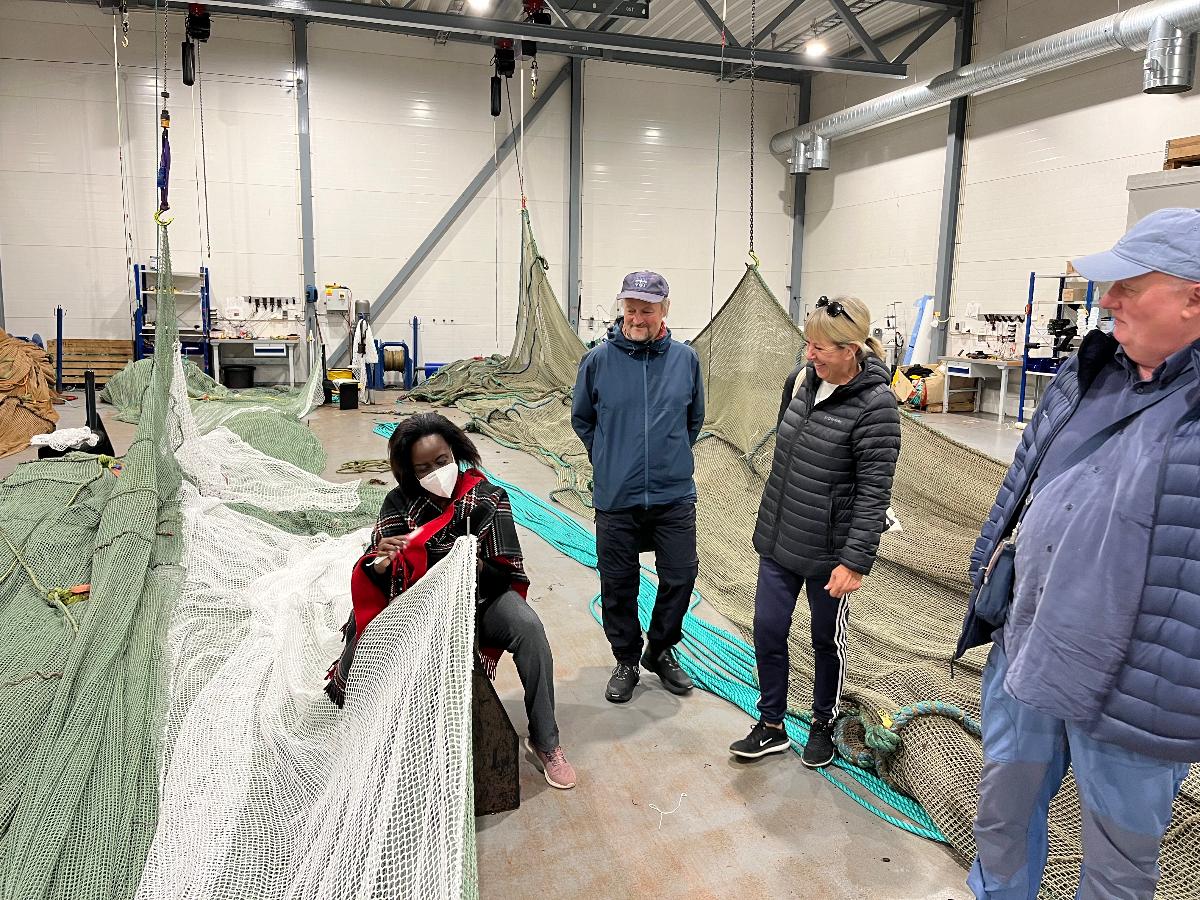
The visit included tours of a seafood training school, key aquaculture sites, fish processing plants, and service providers in Skjervøy, Norway.
The Kenyan delegation was led by Prof. Hazel Miseda Mumbo from Great Lakes University of Kisumu (GLUK) with representatives from the same institution, from Rongo University and aquaculture private industry actors.
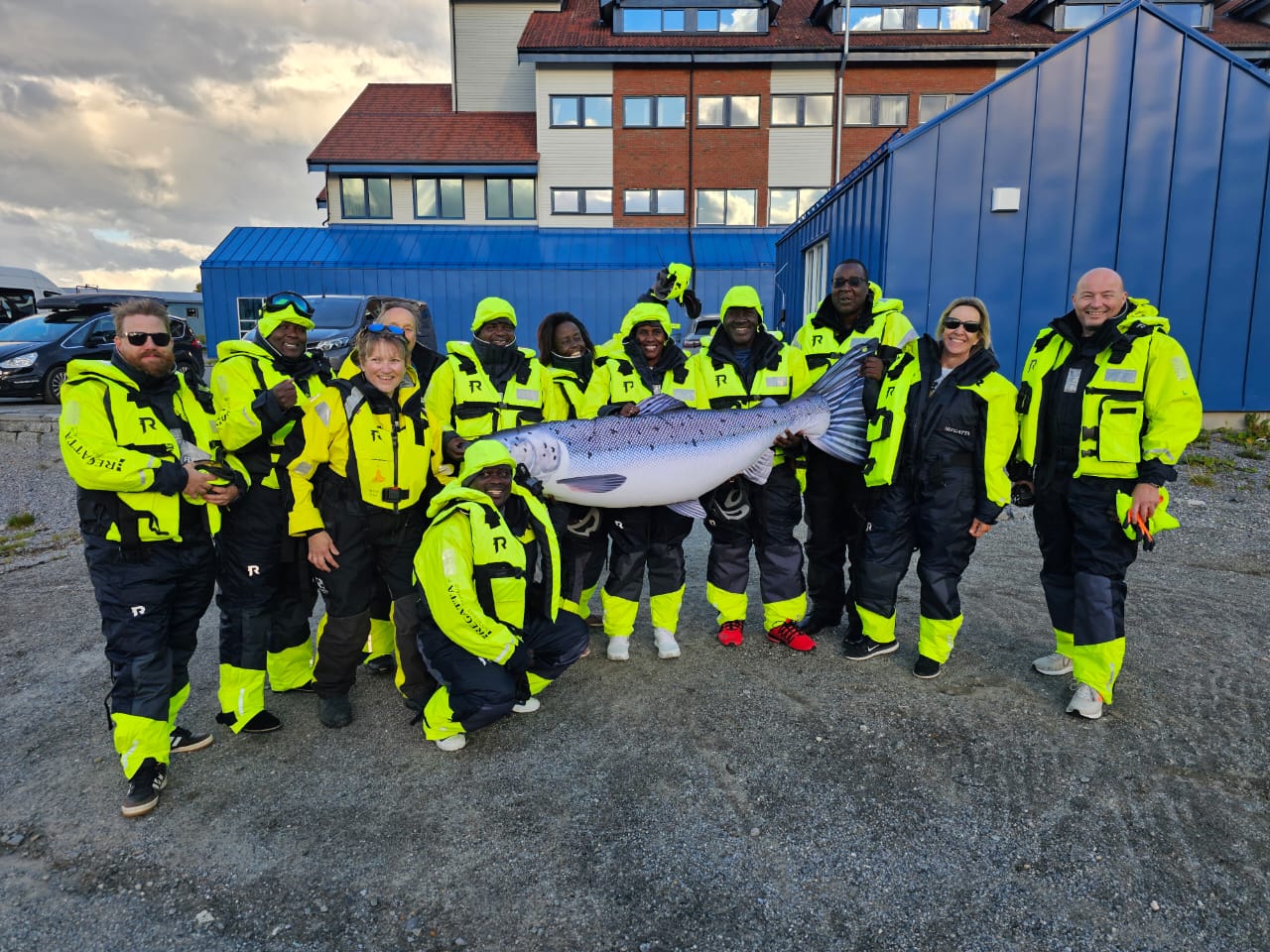
The event in Skjervøy was hosted by Blått Kompetansesenter Nord AS (BKSNord), a renowned maritime training school providing courses for other schools and employees of the Norwegian seafood industry, including aquaculture. While there, AQUADEVBUS participants from Kenya, Finland, and Norway explored the Lerøy Aurora fish processing plant, aquaculture service vessels, NOFI Oppdrettservice AS (Northern Norway's largest aquaculture net service supplier), the Aurora Salmon Centre, and gained experience with daily operations around salmon sea cages. Overall, this event provided Kenian and Finnish colleagues a comprehensive insight into Norway's modern salmon farming industry.
An indelible experience
‘’It was indelible to experience the most efficient aquaculture farming by private entities. The Lerøy Aurora fish processing unit was amazing and extremely time bound from the point of harvesting to the point of export to the market.
On the journey back to Tromsø, the project partners had the opportunity to visit one of the first salmon hatcheries in Norway (Elvevoll Settefisk AS) which combines traditional flow-through and modern Recirculating Aquaculture System (RAS) facilities.
About the project
AQUADEVBUS stands for ‘’Development of Aquaculture Education in Higher Educational Institutions in Kenya’’ and it is funded by the European Commission Erasmus + programme ERASMUS-EDU-2023-CBHE (Capacity building in the field of higher education). The project runs for three years (2023-2026).
‘’The most humbling and encouraging story was at Elvevoll hatchery. They acknowledged that the business collapsed at some point but they picked up their pieces and today they are going on strong, among the few that survived the storm,’’ says Miseda Mumbo.
Focus on aquaculture education and training
‘’As a member of the AQUADEVBUS project, I learnt that specialisation in the aquaculture value chain is very intense and high tech in Norway, with students beginning their practice as early as 16 years of age. This aquaculture value chain specialisation has made the business process in Norway an efficient and sustainable enterprise. The support from technical training is immensely useful and R&D activities are very close to the industry. We hope to emulate the Norwegian aquaculture practices in Kenya,’’ says Rewe.
‘’We hope to emulate the Norwegian aquaculture practices in Kenya.’’
Prof. Thomas Rewe, Great Lakes University of Kisumu
The AQUADEVBUS project is now entering a central phase. In collaboration with Great Lakes University of Kisumu and Rongo University, partners will develop undergraduate and postgraduate aquaculture courses. This capacity-building initiative aims to strengthen the skills of staff and students in Kenya, closely aligned with the needs of the Kenyan aquaculture industry.
Kortnytt fra Department of Arctic and Marine Biology, Faculty of Biosciences, Fisheries and Economics
-
Fiskeri- og havbruksvitenskap - bachelor
Varighet: 3 År -
Fiskeri- og havbruksvitenskap - master
Varighet: 2 År -
Akvamedisin - master
Varighet: 5 År -
Bioteknologi - bachelor
Varighet: 3 År -
Geosciences - master
Varighet: 2 År -
Biology - master
Varighet: 2 År -
Computational chemistry - master
Varighet: 2 År -
Law of the Sea - master
Varighet: 3 Semestre -
Biologi - bachelor
Varighet: 3 År -
Geovitenskap- bachelor
Varighet: 3 År -
Samfunnssikkerhet - bachelor
Varighet: 3 År -
Internasjonal beredskap - bachelor
Varighet: 3 År -
Ph.d.-program i naturvitenskap
Varighet: 3 År -
Environmental Law - master
Varighet: 2 År -
Ph.d.-program i nautiske operasjoner: Fellesgrad
Varighet: 3 År -
PhD programme in Nautical Operations
Varighet: 3 År -
Nautikk - bachelor
Varighet: 3 År -
Ocean Leadership - Executive master
Varighet: 3 År -
Havteknologi, ingeniør - bachelor (ordinær, y-vei)
Varighet: 3 År -
Nautikk - årsstudium
Varighet: 1 År -
Marine Biotechnology and Biological Chemistry - master
Varighet: 2 År
